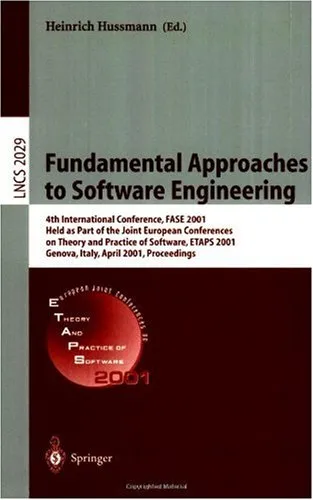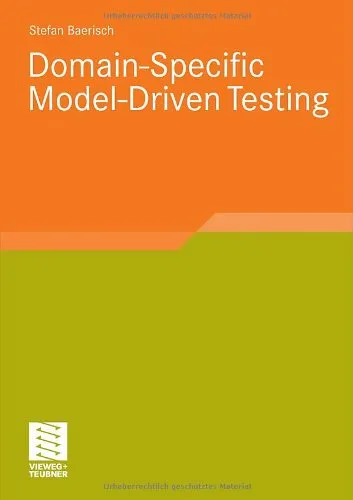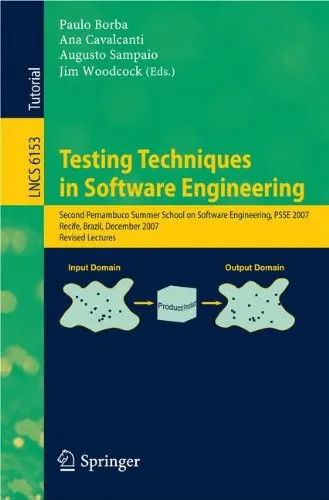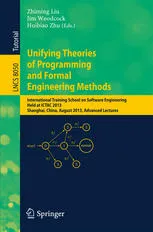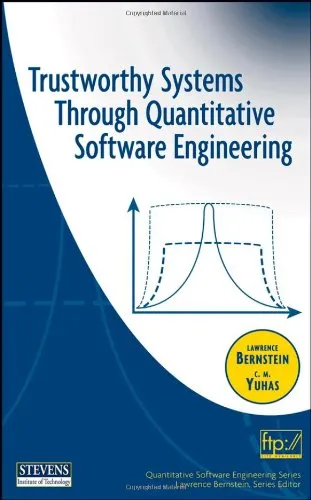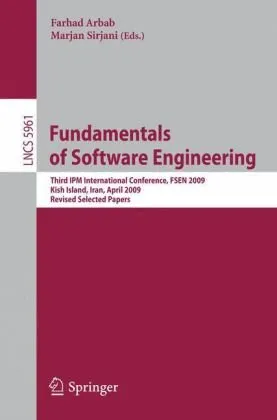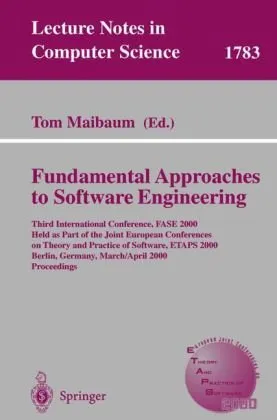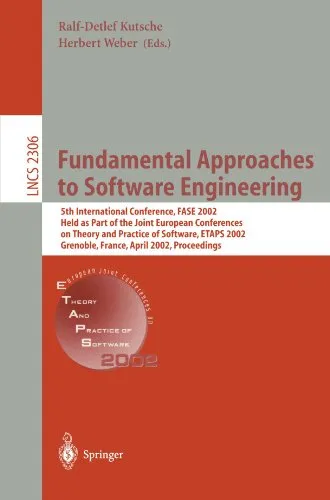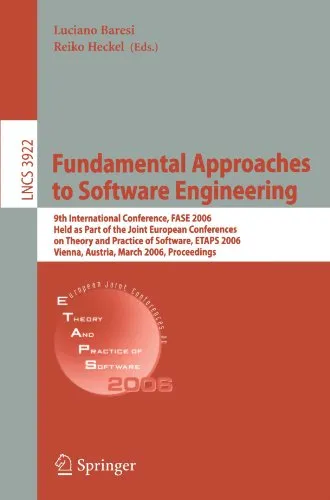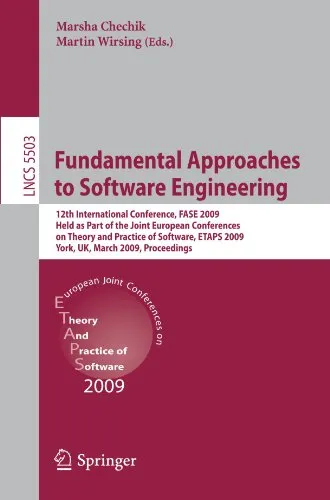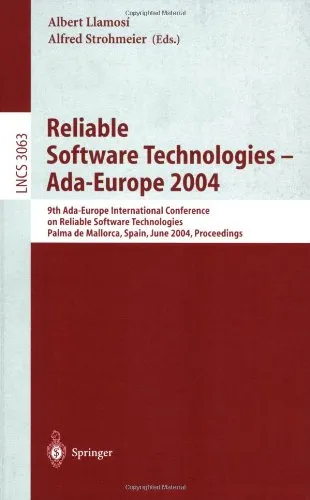Fundamental Approaches to Software Engineering: 4th International Conference, FASE 2001 Held as Part of the Joint European Conferences on Theory and Practice of Software, ETAPS 2001 Genova, Italy, April 2–6, 2001 Proceedings
4.0
Reviews from our users

You Can Ask your questions from this book's AI after Login
Each download or ask from book AI costs 2 points. To earn more free points, please visit the Points Guide Page and complete some valuable actions.Related Refrences:
Introduction
Welcome to Fundamental Approaches to Software Engineering: 4th International Conference, FASE 2001. This book presents the proceedings of the 4th International Conference on Fundamental Approaches to Software Engineering (FASE 2001), held as part of the prestigious European Joint Conferences on the Theory and Practice of Software (ETAPS) in April 2001, in the historic city of Genova, Italy. Edited by renowned experts Bran Selic and Heinrich Hussmann, this invaluable volume offers a comprehensive exploration of software engineering methodologies, foundational theories, and innovative techniques.
Software engineering is a rapidly evolving field, where advances in both theory and practice profoundly impact the development of reliable, flexible, and efficient software systems. Recognizing these challenges, the FASE conference aims to create a bridge between theoretical research and applied engineering practices. This book brings together a wealth of knowledge, featuring contributions from leading academics and professionals worldwide. With its cutting-edge discussions, the proceedings lay a strong foundation for solving contemporary software engineering challenges while also envisioning the future of this dynamic discipline.
Detailed Summary
The content of the book delves into various critical aspects of software engineering, presenting advancements in formal methods, model-driven design, programming languages, verification, and validation techniques.
It begins by addressing model-based engineering practices, an area pivotal in structuring modern software frameworks. The authors highlight the rise of model-driven architecture (MDA), which emphasizes models as the core of system design and implementation. Discussions extend to tool support for modeling and efficient transformations between requirements and executable code.
Another essential topic is the integration of formal methods into software development. The book outlines the benefits of bridging precise mathematics-based approaches with agile development paradigms to improve software correctness and robustness. Chapters also explore concurrency in software systems, the verification of property-based requirements, and the application of automated theorem proving in software engineering practices.
The proceedings further investigate software reliability and scalability. Techniques such as static and dynamic analysis, code synthesis, and testing are rigorously examined to ensure the smooth operation of large-scale systems. Finally, the role of software tools and environments in actively supporting each phase of the lifecycle—from design and prototyping to maintenance—is discussed in depth.
Key Takeaways
- Model-driven design is increasingly influencing the future of software engineering, emphasizing high-level abstractions over low-level programming details.
- Formal methods provide an essential foundation for improving software reliability, and their integration with practical techniques is becoming more pronounced.
- Emerging tools and automated workflows pave the way for more efficient and scalable software development processes.
- Theoretical approaches to programming languages and frameworks continue to be vital for supporting modern, flexible software solutions.
Famous Quotes from the Book
"Building reliable systems depends on more than just technical expertise; it requires a deep understanding of the theoretical principles underpinning software creation and the practical challenges of real-world systems."
"The future of software engineering lies in our ability to successfully merge theoretical rigor with agile innovation."
Why This Book Matters
In the fast-paced world of software development, building high-quality software systems requires a harmonious balance of scientific research, engineering excellence, and innovative thinking. This book plays a pivotal role in advancing this mission by consolidating exceptional research contributions in a single, highly accessible volume.
By providing actionable insights into model-based and formal methods, the book equips researchers, students, and practitioners with the tools they need to tackle modern-day software engineering challenges. Moreover, its focus on the interplay between theory and practice ensures its relevance not only for academics but also for industry professionals striving to stay ahead in a competitive landscape.
As an indispensable resource for anyone deeply invested in software engineering, the FASE 2001 proceedings highlight the fundamental approaches that continue to shape the evolution of this dynamic discipline. Whether you are a researcher exploring the frontiers of formal verification or an engineer looking for practical insights into model-driven designs, this book offers a comprehensive guide to understanding the field's current trends and future directions.
Free Direct Download
You Can Download this book after Login
Accessing books through legal platforms and public libraries not only supports the rights of authors and publishers but also contributes to the sustainability of reading culture. Before downloading, please take a moment to consider these options.
Find this book on other platforms:
WorldCat helps you find books in libraries worldwide.
See ratings, reviews, and discussions on Goodreads.
Find and buy rare or used books on AbeBooks.
1218
بازدید4.0
امتیاز0
نظر98%
رضایتReviews:
4.0
Based on 0 users review
Questions & Answers
Ask questions about this book or help others by answering
No questions yet. Be the first to ask!
